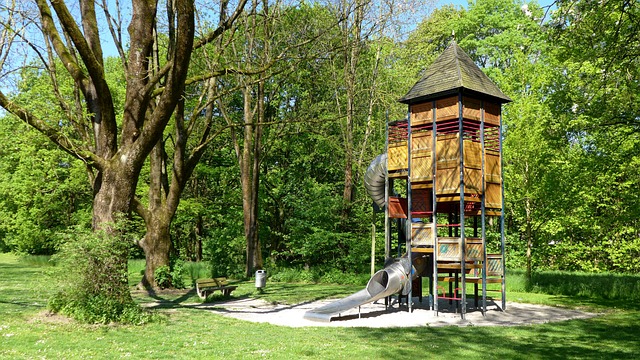NCAA baseball teams, like the Ducks, prioritize player development as a core strategy for achieving success. This involves a holistic approach encompassing physical conditioning, technical training, mental toughness coaching, and tactical analysis. Coaches tailor individualized programs to each player's unique needs, utilizing structured practices, advanced analytics, and strength & conditioning. Regular progress tracking using comprehensive metrics and analytics tools ensures players are prepared both on and off the field, contributing to the overall success of NCAA baseball teams.
“Unleashing Potential: Player Development in Ducks Baseball
In the competitive landscape of NCAA baseball, successful teams like the Oregon Ducks prioritize player development. This article explores the multifaceted approach to cultivating talent within the Ducks program. From comprehensive coaching and mentorship to innovative training strategies, we delve into how the Ducks prepare their players for peak performance. Additionally, we examine key metrics used to track progress, offering insights into the science behind building a champion team in NCAA baseball.”
- Understanding Player Development Programs in NCAA Baseball Teams
- The Role of Coaching and Mentorship in Duck's Baseball Development
- Training and Skill Enhancement Strategies for NCAA Baseball Players
- Evaluating and Tracking Progress: Metrics for Success in Ducks Baseball
Understanding Player Development Programs in NCAA Baseball Teams

The development of players is a cornerstone of success for any NCAA baseball team, including the Ducks. These programs are meticulously designed to nurture and enhance the skills of athletes, preparing them for both college and professional levels. Through structured training, coaching, and strategic planning, NCAA baseball teams aim to unlock each player’s full potential.
Player development in NCAA baseball involves a holistic approach, focusing on physical conditioning, technical mastery, mental toughness, and tactical understanding. The Ducks’ program includes regular strength and conditioning sessions, specialized skill workshops, and competitive match analysis. By fostering a culture of continuous learning and improvement, the team ensures that players grow not just as athletes but also as well-rounded individuals, ready to excel in any baseball-related endeavor.
The Role of Coaching and Mentorship in Duck's Baseball Development

The development of players in NCAA baseball teams, such as the Ducks, heavily relies on the guidance of experienced coaches and mentors. These individuals play a pivotal role in shaping young athletes’ skills, strategies, and mental resilience, which are essential for success on and off the field. Through personalized training sessions and one-on-one interactions, coaches identify each player’s strengths and weaknesses, tailoring their coaching methods accordingly. This tailored approach ensures players receive the necessary attention to improve and reach their full potential.
Mentorship, often provided by veteran players or alumni, adds a unique dimension to the development process. It offers insights into the challenges and triumphs of navigating college baseball, fostering a sense of community and purpose among players. These mentors serve as role models, guiding younger athletes through academic pressures, team dynamics, and the mental fortitude required to perform at the highest levels. Their experiences contribute to a richer learning environment, enhancing the overall player development experience in NCAA baseball teams like the Ducks.
Training and Skill Enhancement Strategies for NCAA Baseball Players

The development of players in NCAA baseball teams is a meticulous process that involves structured training and skill enhancement strategies. Coaches play a pivotal role in identifying areas for improvement, tailoring individualised programmes to suit each player’s unique needs, and fostering an environment conducive to learning. This approach includes regular practice sessions focused on fundamental skills such as hitting, pitching, fielding, and base running. Advanced analytics are increasingly employed to track performance metrics, enabling coaches to make data-driven adjustments and provide targeted feedback.
Furthermore, the integration of strength and conditioning programmes, along with agility and speed training, enhances athletes’ physical capabilities. These strategies not only improve overall athletic performance but also reduce injury risks common in high-intensity sports like NCAA baseball. Regular team meetings and mental training sessions are incorporated to build resilience, foster camaraderie, and teach players how to navigate the pressures of competition. Ultimately, these comprehensive training methods prepare NCAA baseball players for success on the field, contributing to their growth as both athletes and individuals.
Evaluating and Tracking Progress: Metrics for Success in Ducks Baseball

Evaluating and tracking progress is paramount for the success of any NCAA baseball team, and Ducks Baseball has embraced this philosophy to foster player development. The program employs a comprehensive metric system that goes beyond traditional win-loss records. Key performance indicators (KPIs) include batting average, on-base percentage, slugging percentage, and pitching ERA, allowing coaches to pinpoint strengths and weaknesses. Advanced analytics tools are utilized to gain deeper insights, identifying areas for individual improvement and strategic adjustments.
Regular assessments at different stages of the season help in gauging progress. This data-driven approach ensures that players receive tailored feedback and targeted training. By focusing on specific metrics, Ducks Baseball aims to enhance overall team performance, preparing players for higher levels of competition and contributing to their long-term success in the sport.














